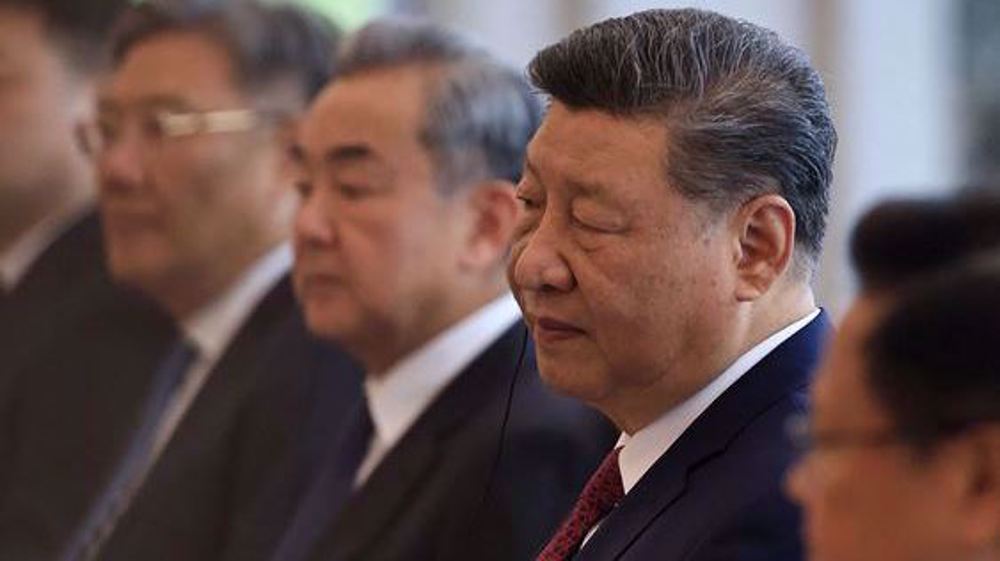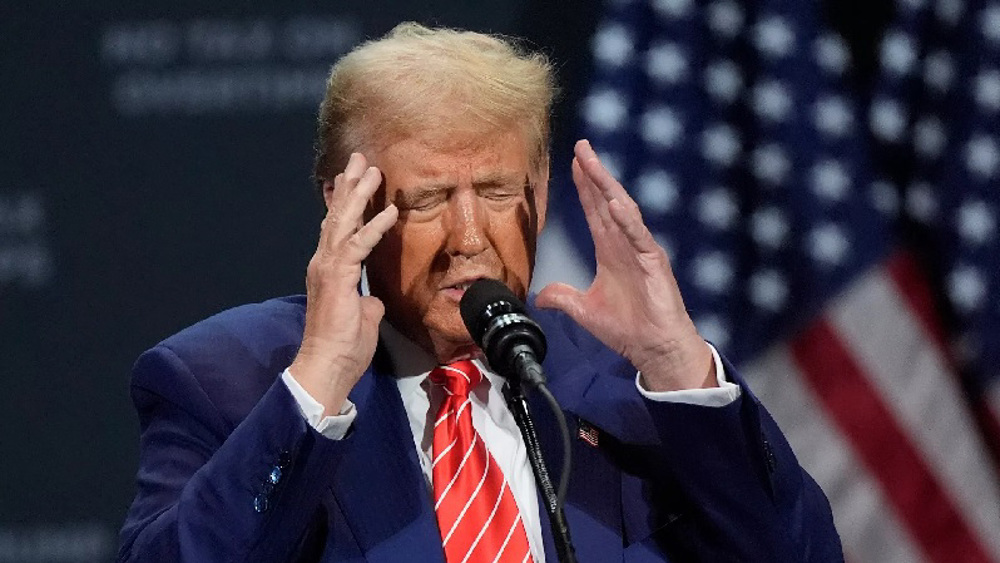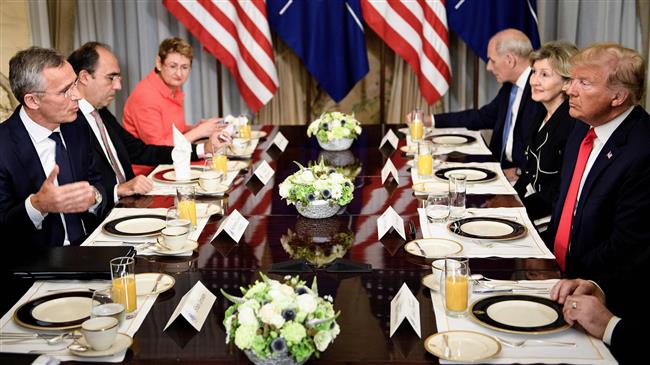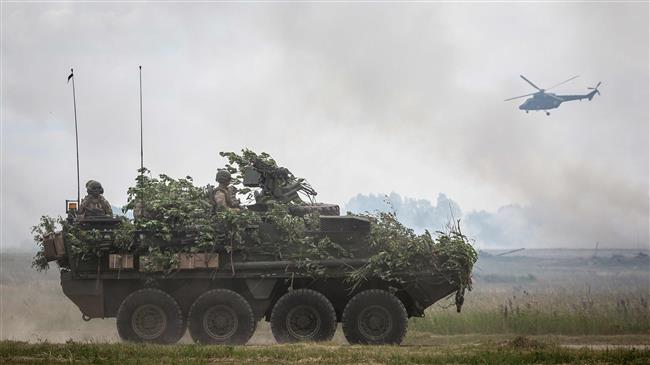NATO formally invites Macedonia to join alliance
NATO has formally invited the Republic of Macedonia, one of the successor states of the former Yugoslavia, to begin accession talks to join the Western military alliance, in what is seen as an attempt by NATO to extend its reach in the Balkans in open defiance of Russia.
“NATO’s door is and will remain open. We agreed to invite the government in Skopje to start accession talks,” said Jens Stoltenberg, the NATO chief, at a news conference after the Western alliance leaders approved the move at a summit in Brussels on Wednesday.
The small Balkan state of Macedonia, with a population of two million, had a long-running dispute over its name with its southern neighbor Greece, which blocked the former’s accession to NATO until recently, when Athens and Skopje resolved that dispute.
Countries that aspire to become a member state to NATO must first win unanimous approval from existing members. Greece had been a member since 1952.
The agreement still needs to be confirmed via a referendum in Macedonia in September, but Athens seems to have already stopped blocking Macedonia’s accession to NATO.
While the accession process is relatively long, Stoltenberg seemed to suggest that Macedonia will become a member soon after finalizing the deal with Greece.
“Once all national procedures have been completed to finalize the name agreement, the country will join NATO as our 30th member,” Stoltenberg said.
Macedonia became a member of the United Nations (UN) in 1993, but due to the name dispute with Greece, it was admitted under the provisional description the Former Yugoslav Republic of Macedonia (FYROM), a name that is also used by NATO and the European Union (EU).
“This is a once in a lifetime opportunity and either they (the Macedonian people) support the agreement and they can join NATO, or they don’t support the agreement but then they won’t join it. They cannot get both,” Stoltenberg further said.
If it successfully joins NATO, the Balkan state will add to the bloc an 8,500-strong military, which relies on a combination of Russian, German, Greek, and US tanks and armored vehicles. It has no combat warplanes.
The prospect of Macedonia becoming a member to NATO has already angered Russia, which has long opposed the eastward expansion of the military alliance.
Russia’s ambassador to Skopje has criticized Macedonia’s ambitions to join NATO, saying it could become “a legitimate target” if relations between the military alliance and Moscow further worsen.
NATO has been increasingly beefing up its presence in Eastern Europe and near Russian borders.
Last month, some 19 countries, mostly from NATO, stationed around 18,000 troops in Poland and the three Baltic states of Estonia, Latvia, and Lithuania. A multi-national NATO battle group carried out military drills under US leadership in Poland while Germany, Britain, and Canada led the operations in the three other countries.
Moscow has been wary of NATO’s increased build-up near its borders while accusing countries like Poland of opportunism by trying to secure permanent NATO presence on their soil.
Tensions between Russia and NATO have already soured over an armed conflict in eastern Ukraine.
Additionally on Wednesday, Greece said it would expel two Russian diplomats suspected of involvement in rallies in the country against the Macedonian name agreement. Russia also said it would respond in kind, in a rare diplomatic row between two countries with traditionally warm relations.

Xi calls on EU to join China to resist Trump trade war 'bullying'

Euronext says US resembling emerging market as trade war escalates

Trump's tariffs hitting EU exports to US
VIDEO | German Muslims forced to pray on streets due to forced closure of mosque
VIDEO | New tragedy unfolds in Rafah as Israeli regime expands ground attacks in Gaza
VIDEO | 14 million youths in EU have poor mental health
VIDEO | Syrian protesters condemn Israeli aggression in Gaza
US judge rules for Mahmoud Khalil’s deportation over his pro-Palestinian views
VIDEO | Massive Friday protests in Yemen: Call for end to US, Israeli aggressions
Leaked docs. expose Israeli censorship campaign to erase pro-Palestinian content online
Yemen targets Israeli military sites in Jaffa in retaliation for Israel’s Gaza genocide















 This makes it easy to access the Press TV website
This makes it easy to access the Press TV website